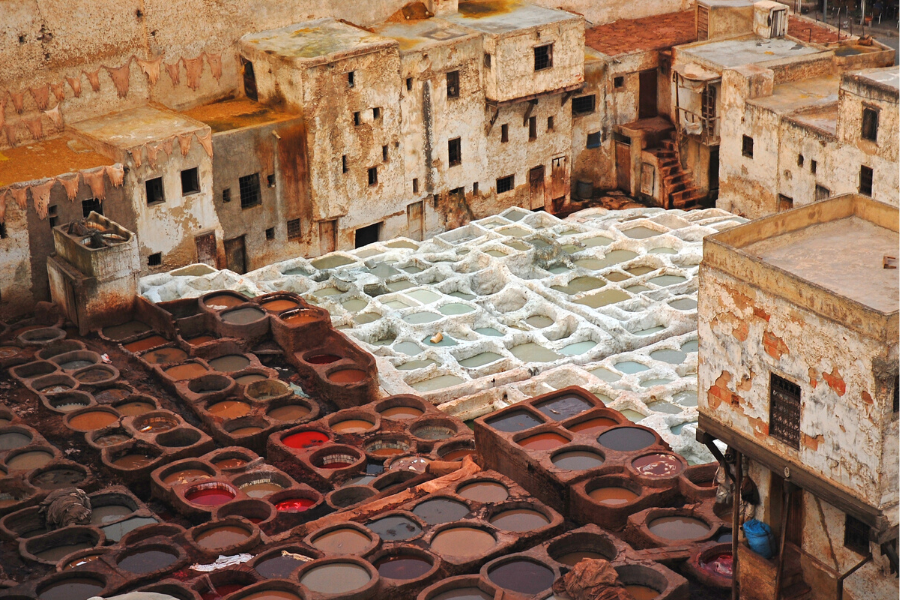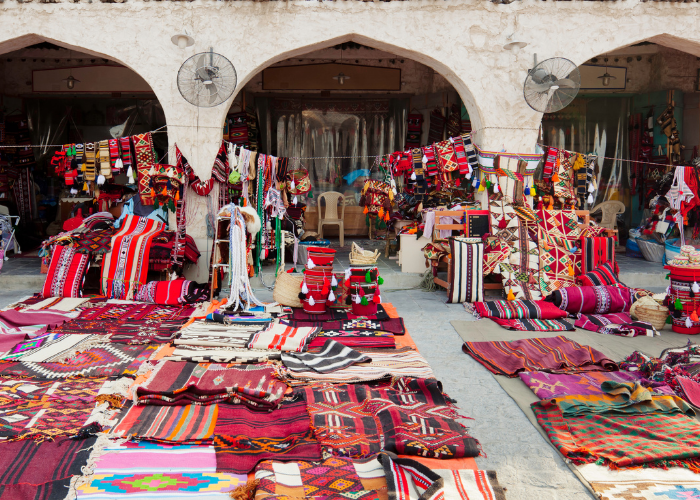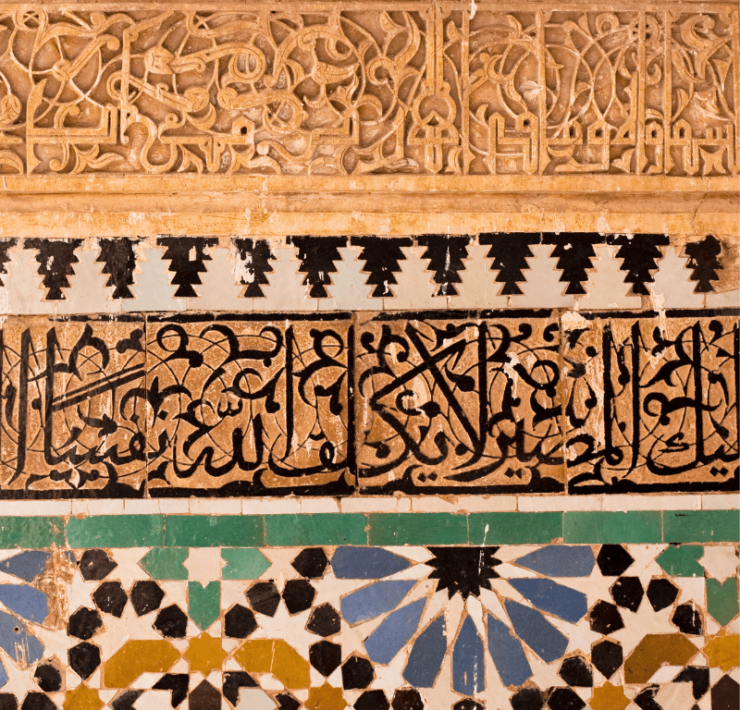Trying to decide whether to learn Arabic? Whether you’re considering studying Arabic at university, studying in the Middle East or signing up for a short Arabic course, it’s a big commitment to make. We’ve done some of the hard work for you and rounded up all the pros and cons of choosing to study Arabic to help you decide!
Pro: It’s a major world language offering endless opportunities
As one of the five major world languages, Arabic is a brilliant language to study regardless of the field you work in or your other interests. Whether you have an interest in Middle Eastern politics, hope to work in the region, or just adore Middle Eastern music, food or art, learning Arabic is a crucial step to deepening your understanding of the Arab world.
Spoken by more than 4% of the world population, the sheer breadth that Arabic will give you can’t be underestimated (in comparison, English is spoken by 5.5% of the population – speaking both would allow you to communicate with one in ten people across the entire globe!).
If you’re hoping to use languages in your career, Arabic is an amazing choice. While all languages are invaluable and look brilliant on your CV, Arabic is a stand-out skill that will make your applications unique. Even if the career you’re aiming for doesn’t specifically require Arabic, mastering a complex foreign language shows off your talent, commitment and initiative – all transferable qualities that your next employer is looking for!

Con: It can seem difficult to find resources for studying Arabic
Especially if you start out studying Arabic in Europe or the US, it can seem harder to find resources in Arabic than in other languages. Even academic bookshops with shelves loaded with French, Spanish and German textbooks often only have a book or two available for Arabic students.
Thankfully, the internet is here to save us all! As long as you know where to look, you’ll never be short of Arabic resources, whether you need help with grammar or a TV series to watch to improve your ammiya. To get started, head to our Arabic resources page where you’ll find everything you need to put together your own fun and varied Arabic practice, from Instagram accounts to follow and YouTube channels to watch to the best movies and series to watch if you’re studying Arabic!
Pro: The perfect challenge!
If you love a challenge, Arabic is for you! ‘Nothing ventured, nothing gained’ could be the motto for learning this language, and the hard work you’ll put into mastering it will certainly pay off when you find yourself chatting in Arabic a few years down the line!
If you like your challenges with some structure, why not try out our month-long Arabic Challenge? We ran an Arabic Challenge in our private Facebook group for Arabic learners back in March 2021 and all of the content is archived and available to work through in your own time (and it’s totally free!). Suitable for all levels and dialects, the daily exercises are adaptable no matter where you are on your journey with Arabic!

Con: A new alphabet and thousands of words to learn
Many Arabic students start at the very bottom as their mother tongues have very little in common with Arabic. The challenges of learning other languages which share alphabets or have overlapping vocabulary are multiplied if you study Arabic, and getting to grips with a new script is a challenge in itself. Not only that, but because Arabic is such a rich and poetic language, students face seemingly endless lists of vocabulary and synonyms to learn.
BUT it’s important to remember that a big part of studying Arabic isn’t just learning the words themselves, it’s learning systems and methods to allow you to study efficiently and effectively! Once you’ve got your systems figured out, the vocabulary will follow at a speed you wouldn’t believe. We’ve got a FREE vocabulary printable for you to help you do just that – it’ll make sure you keep on top of your vocabulary practice and help you smash your Arabic goals in no time!
Pro: The best year abroad of all time
If you’ve been bitten by the wanderlust bug, it could be that travelling abroad to study Arabic is one of the biggest attractions of studying the language. With brilliant language schools across the Middle East, from Marrakech to Muscat, studying Arabic abroad is the adventure of a lifetime!
On your days off, you could find yourself hiking the Atlas Mountains, exploring the Siq at Petra, spending your student loan on carpets, or witnessing a monsoon in the desert in Salalah. Whet your appetite with one of our travel guides, whether you’ve got your eye on a trip to Muscat, Marrakech or Cairo.

However, studying in the Middle East can take a bit of planning and organisation. From picking where to go, to choosing your language school, and even deciding what to pack, there are lots of decisions to make! The good news is that you can design your study trip to be as intensive as you like – if you’re a confident traveller, you can organise your own accommodation separately and explore your new home under your own steam. But if you’d prefer a bit more support while you study, there are plenty of language schools which either have accommodation on-site or organise homestays for their students. With your accommodation, meals and even excursions and activities all lined up for you, you can relax and enjoy your trip to the full!
Get some help deciding which country to pick with our guide to the best cities to study Arabic in the Middle East, or read more about studying in Fes and Amman if you already have them shortlisted! If you haven’t travelled to the Middle East before, don’t miss our guide on what to wear to make packing for your trip a breeze.

Con: Learning Arabic takes time
We won’t lie to you, learning Arabic is not going to happen overnight. For most students, it means learning a new alphabet from scratch and adapting to a completely different grammatical system. This requires a considerable amount of commitment, both in time and willpower! However, while it may be less time-consuming to learn a language more similar to your mother tongue, Arabic is certainly all the more rewarding for the effort that you’ll need to put in. Get a helping hand along the way and stay on track with our 4-Week Study Planner, a fabulous resource to keep you motivated, organise your time and support you on your Arabic journey!
Pro: Dialect diversity!
While it can be confusing to figure out which dialect to focus on, the variety of dialects in Arabic provide a breadth that very few other languages can offer. While dialects do differ from region to region, learning any form of Arabic will give you a means to communicate with 313 million people in more than 25 countries!
The sheer number of countries and cultures where Arabic is spoken even beats larger world languages like Chinese and Spanish, making it one of the most interesting languages in the world to learn. Beyond that, you’ll have a huge advantage in other languages with a strong Arabic influence, like Wolof, Kurdish, Swahili and Bahasa Indonesia or Melayu. Not sure whether you want to learn a dialect? Get started here.

Con: Studying Arabic can feel isolating
Because there aren’t as many people learning Arabic as say, French or Spanish, it can be harder to find study buddies – or just a sympathetic ear when memorising Kaana and her Sisters gets too much. Especially for those who are learning outside of a formal course or in a country far from the Middle East, studying Arabic has the potential to be an isolating experience.
After all, the whole purpose of language is communication, so studying solo is always going to be an uphill battle! But it doesn’t need to be – find your Arabic support community and maybe even a study buddy on our dedicated Pink Jinn Instagram page, @pinkjinnarabic, or join our private Facebook group full of like-minded Arabic students at Pink Jinn Arabic Learners!
Pro: Arabic is a means to intercultural understanding
Intercultural understanding has never been more important, and as individuals, the most powerful thing we can do is to educate ourselves. In an era of fear-mongering news stories and social division at every turn, learning Arabic and immersing yourself in Middle Eastern culture is a potent antidote to the troubles of our times. Hopefully, learning Arabic won’t just help you to educate yourself, but will give you the skills and cultural awareness you need to work towards a better world!

Con: Courses often focus on Modern Standard Arabic
One potential stumbling block of learning Arabic, particularly for learners based in the UK, Europe, or the US, is that courses often focus on Modern Standard Arabic, sometimes excluding dialects completely. This can make using Arabic on the ground a challenge, as MSA is only used in formal situations. This can feel really frustrating after all the time and effort that goes into learning Arabic, so if you’re learning MSA through a course or a university, why not round out your Arabic practice with a hint of dialect by using one of our Immersion Itineraries, or add in some YouTube videos to lighten the tone of your next study session in whichever dialect you prefer!
Pro: Discover a whole new world!
And finally, the really, really amazing part – speaking Arabic is your passport to a whole new world of adventure. The Middle East is one of the most welcoming regions you could imagine, and speaking Arabic will open doors to places and experiences that are closed to many others – whether that’s fulfilling all your wildest travel goals, being able to have in depth conversations with your homestay hosts in Arabic, being taught to make warak ‘ainab by your new friend’s mum or getting invited to a wedding! By studying Arabic, you’ll be able to dive into music, film, literature, travel, food and art you might never have known existed, and all you have to do is get started!

Where to start:
If the pros won out and you’re ready to give Arabic a go, here are a few of our guides and resources to help you get started on your Arabic journey:
10 ways to learn Arabic at home for FREE
MSA vs Arabic Dialect: Which Should You Learn?
7 essential resources for Arabic students
Step-By-Step Guide: How Effective Goal Setting Can Help You Learn Arabic
You’ll get even more when you subscribe to the Hump Day Newsletter – from our FREE Arabic vocabulary diary to the monthly tips and insights into Middle Eastern politics and culture that we share exclusively with our Hump Day community. Click here to join us!
Photos: Stock images from Canva






